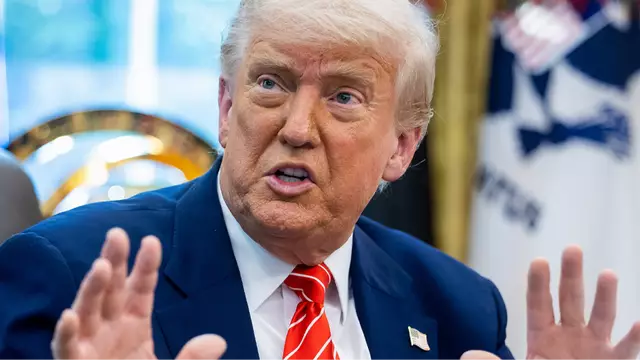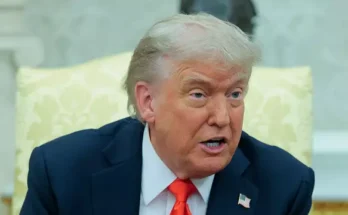Donald Trump has signed an order that will ban people from 12 countries from entering the US.
The POTUS signed the travel ban yesterday (June 4), which will take effect on Monday. Countries may still be removed — or added — before then.
Trump‘s decision comes off the back of an attack that took place in Colorado in recent days, an ordeal that saw an Egyptian national allegedly target a group of pro-Israel protesters at an outdoor mall in Boulder, BBC News reported.
Speaking on the link between the order and the attack on June 2, Trump said: “The recent terror attack in Boulder, Colorado, has underscored the extreme dangers posed to our country by the entry of foreign nationals who are not properly vetted, as well as those who come here as temporary visitors and overstay their visas.”
“As President, I must act to protect the national security and national interest of the United States and its people,” he added.
Trump continued to argue that America must ensure that those coming into the country don’t have ‘hostile attitudes toward its citizens, culture, government, institutions, or founding principles’, Sky News says.
The 12 nations included in the order are: Afghanistan, Myanmar, Chad, Republic of the Congo, Equatorial Guinea, Eritrea, Haiti, Iran, Libya, Somalia, Sudan and Yemen.
The Trump administration will ‘partially restrict and limit the entry of nationals’ from Burundi, Cuba, Laos, Sierra Leone, Togo, Turkmenistan, and Venezuela as well.
With the date of the ban looming, as per usual, Trump said he’s willing to negotiate with the countries listed.
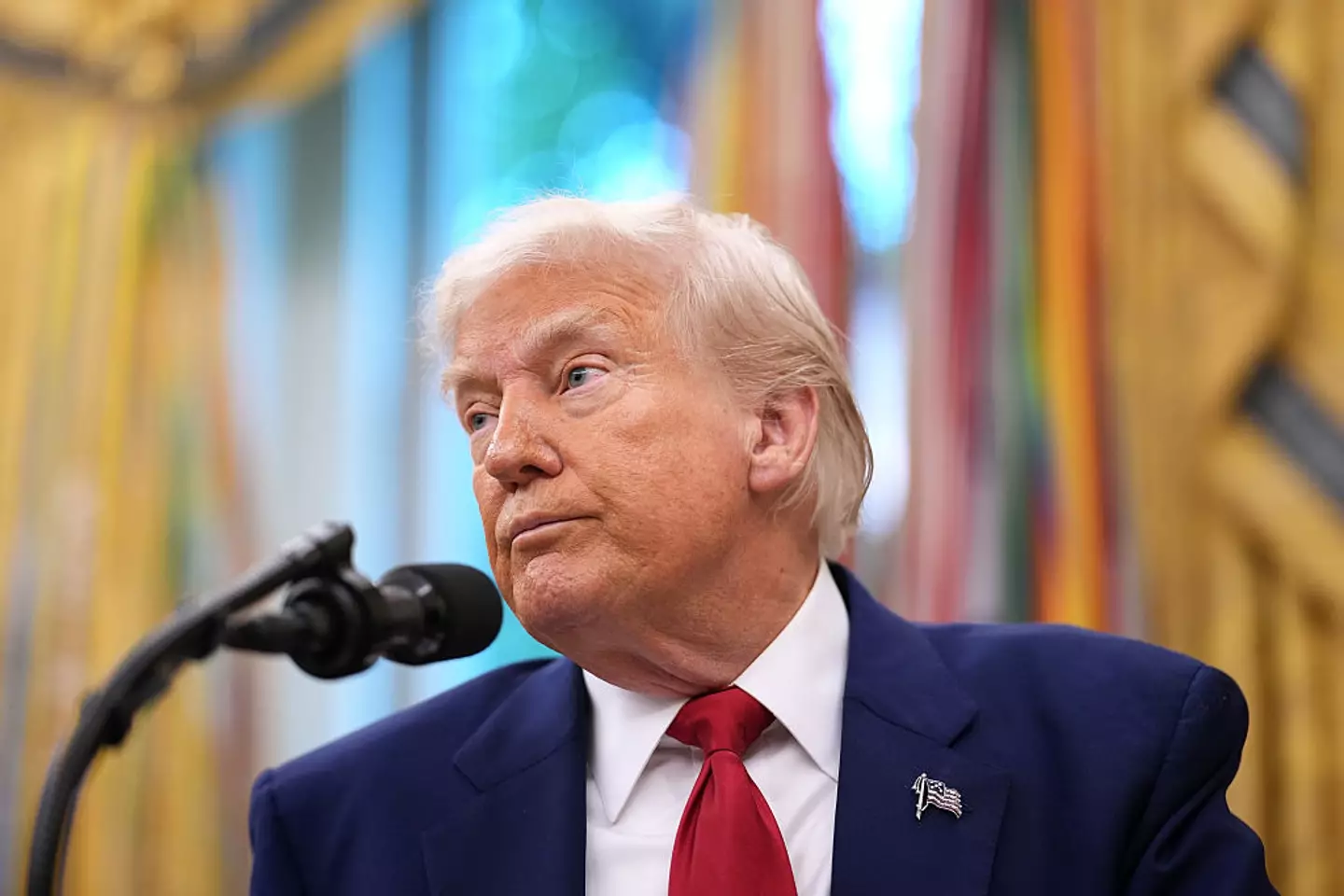

Trump’s new travel ban comes into force on Monday (June 9) (Andrew Harnik/Getty Images)
He described himself as being ‘committed to engaging with those countries willing to cooperate to improve information-sharing and identity-management procedures, and to address both terrorism-related and public-safety risks’, as per New York Post.
Some people are except from the ban, however, these include athletes traveling for major sporting events, those with ‘immigrant visas for ethnic and religious minorities facing persecution in Iran’, Afghan nationals holding Special Immigrant Visas, lawful permanent residents of the US, and dual nationals who have citizenship in countries not included in the travel ban, the BBC explained.
As expected, Trump’s new order has created some backlash as Rep. Pramila Jayapal, the former chair of Congressional Progressive Caucus, branded the ban as ‘dangerous’.
She said on Twitter: “This ban, expanded from Trump’s Muslim ban in his first term, will only further isolate us on the world stage.”
“This discriminatory policy, which limits legal immigration, not only flies in the face of what our country is supposed to stand for, it will be harmful to our economy and our communities that rely on the contributions of people who come to America from this wide range of countries,” Jayapal continued.
Featured Image Credit: Francis Chung/Politico/Bloomberg via Getty Images
Topics: Donald Trump, Politics, US News, Travel, World News
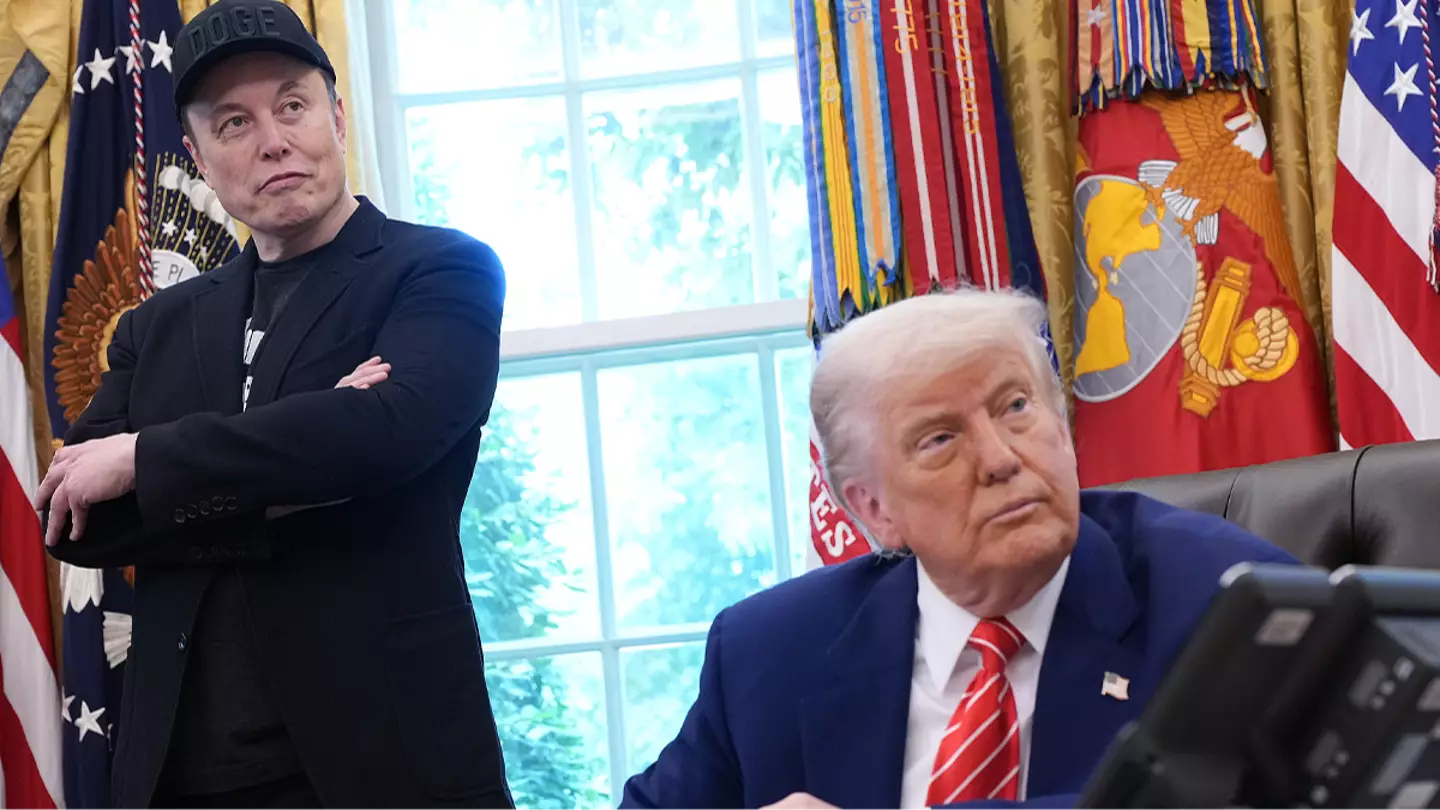

Elon Musk’s time in the Trump administration has come to a close as quickly as it came and there were 5 big takeaways from his final White House press conference.
Elon Musk has been a massive public figure for years but things pretty much went into overdrive when he became a very outspoken supporter of Donald Trump and his bid for the White House.
Things went a step further beyond when he was welcomed into the Trump administration as the DOGE (Department of Government Efficiency) chief.
Musk had made it clear he would be stepping down from the role last week, and this comes as he faced increased scrutiny from those at Tesla for not giving the business enough of his attention.
Here are some of the big takeaways from the his farewell press conference.
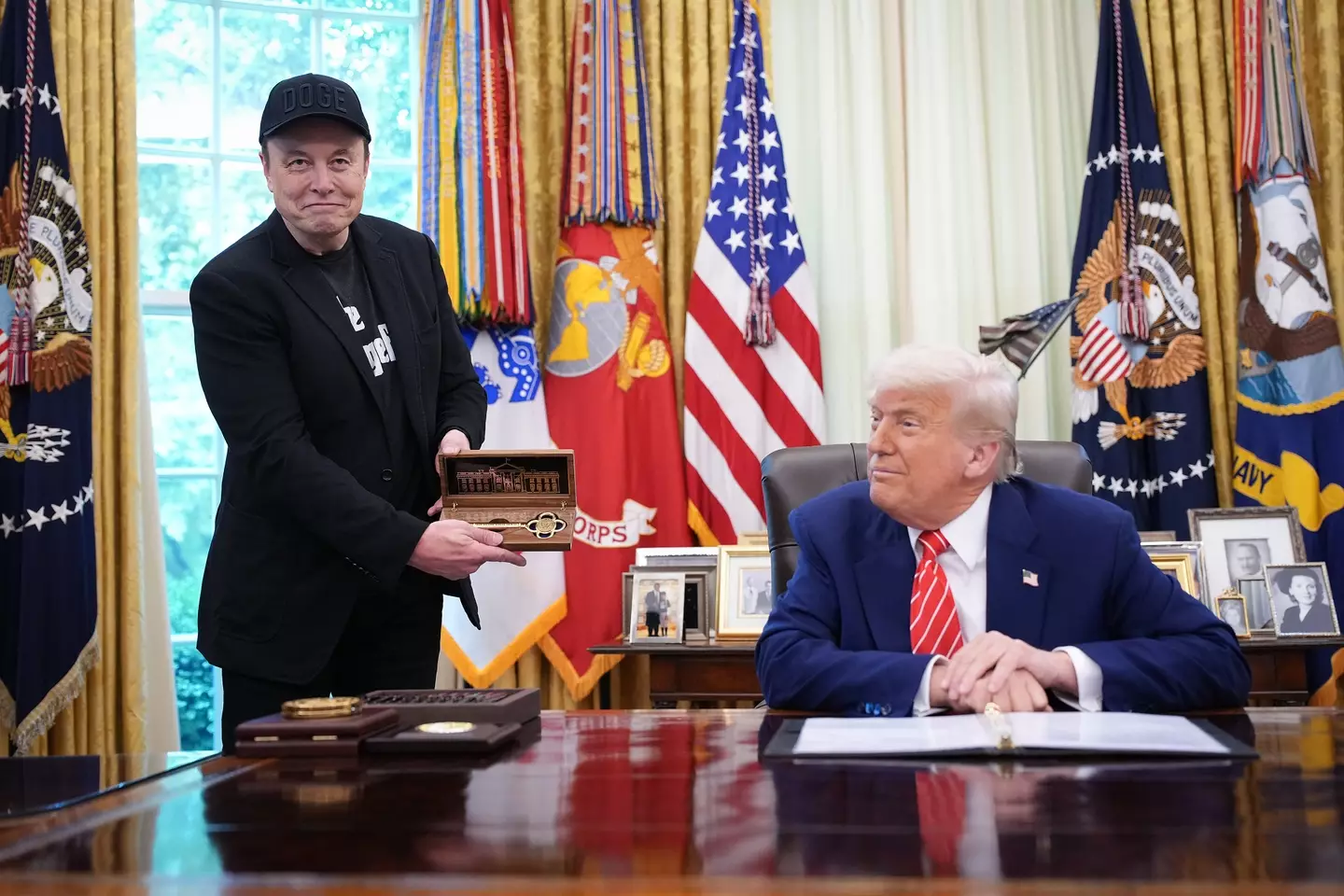

Musk is set to leave DOGE to focus on his businesses like Tesla(Kevin Dietsch/Getty Images
Elon Musk not leaving completely
While Musk is leaving DOGE, he insisted that the work the department has been doing will continue.
Speaking at the White House, he said: “My time as a special government employee necessarily had to end, it was a limited-time thing.”
Musk added that DOGE was now a ‘way of life [that is] “permeating throughout the government.”
Musk also said he will continue to consult with Trump with the president adding: “Elon’s really not leaving, he’s going to be back and forth… it’s his baby.”
Elon Musk’s black eye.
Musk has faced a hefty amount of criticism from all sides since becoming rather outspoken and supportive of Trump which has hurt his reputation.
This has seeped out into his business ventures as well as people have taken to protesting his Tesla cars. But the billionaire appeared to have a literal black eye during the conference and Musk had to eventually explain.
Musk claimed the bruise came from his five-year-old son during some rough play, telling to reporter: ” I was just horsing around with little X, and I said punch me in the face, and he did.
“It turns out even a five-year-old punching you in the face, accidentally, it bruises up.”
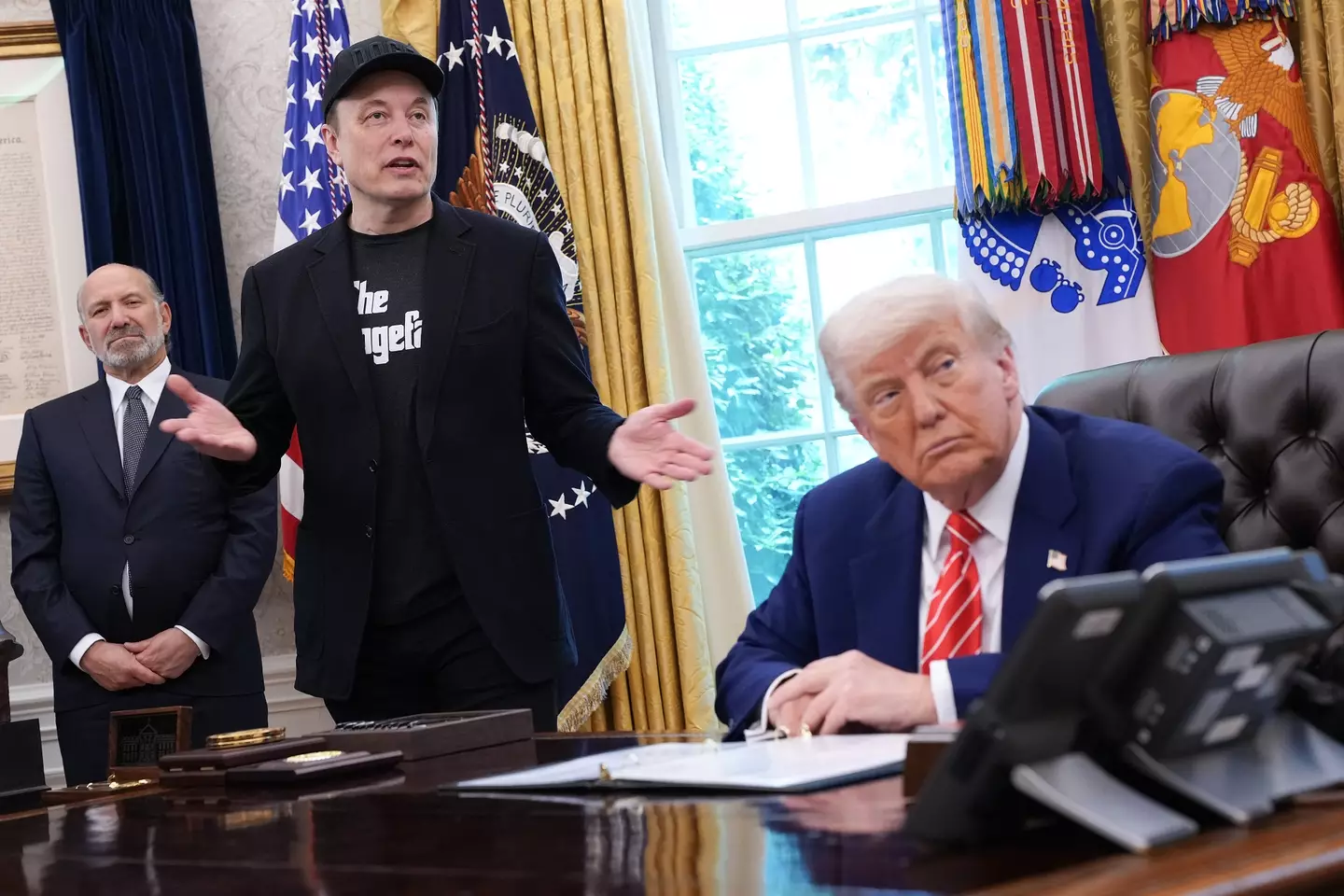

Musk condemned the New York Times when a reporter highlighted a recent report by the outlet (Kevin Dietsch/Getty Images)
Elon Musk shuts down drug question
While rumors and speculation constantly follow all public figures, Musk has faced his fare share of them.
During the conference he was asked about a New York Times report that alleges during his time supporting Trump on the campaign trail, Musk consumed multiple drugs that went ‘well beyond occasional use.’
It also raised the question as to whether Musk had been taking a cocktail of drugs while working in the White House with DOGE.
However, before a reporter could even question Musk about their latest report, he cut them off and dismissed the New York Times, noting their reports of alleged Russian interference in the 2016 election.
Musk mocked the outlet and simply said: ‘Let’s move on.”
Trump speaks out on Emmanuel Macron incident
Donald Trump briefly commented about the incident that dominated headlines from a brief video of the French President.
Macron’s wife, Brigitte Macron, apparently shoved the president in his face right as plane doors were opening and video footage of this moment caused a serious stir.
Trump appeared to note make such a big deal out of the incident simply saying: “He’s fine too. They’re fine. They’re two really good people I know them very well.”
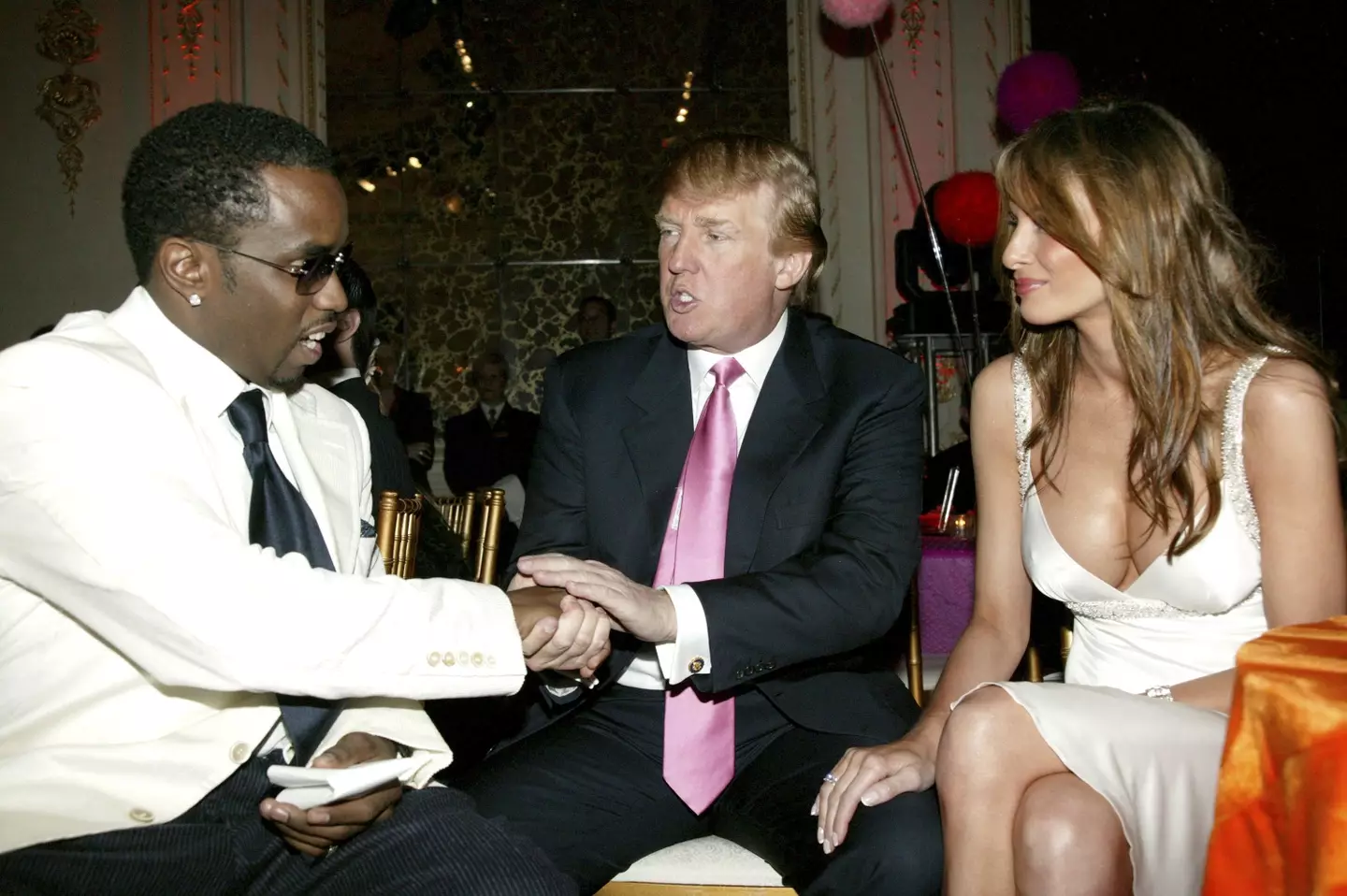

Trump also took questions about the ongoing Diddy trial (Johnny Nunez/WireImage)
Trump reflects on Diddy trial
President Trump was also asked about the ongoing trial of Sean ‘Diddy’ Combs and his previous relationship with the rapper/producer.
Combs, 55, is accused of racketeering and sex trafficking by force, fraud or coercion, among other charges – all of which he has denied and has pleaded not guilty.
Trump did not rule out the possibility of a pardon, as he said: “Nobody’s asked. But I know people are thinking about it. I know they’re thinking about it. I think some people have been very close to asking.
“First of all, I’d look at what’s happening, and I haven’t been watching it too closely, although it’s certainly getting a lot of coverage. I haven’t seen him. I haven’t spoken to him in years.”
He closed by saying he would have to look at the facts and see if Diddy was mistreated before he could weigh in about potential pardons.
Featured Image Credit: Kevin Dietsch/Getty Images
Topics: Donald Trump, Elon Musk, News, US News, Politics
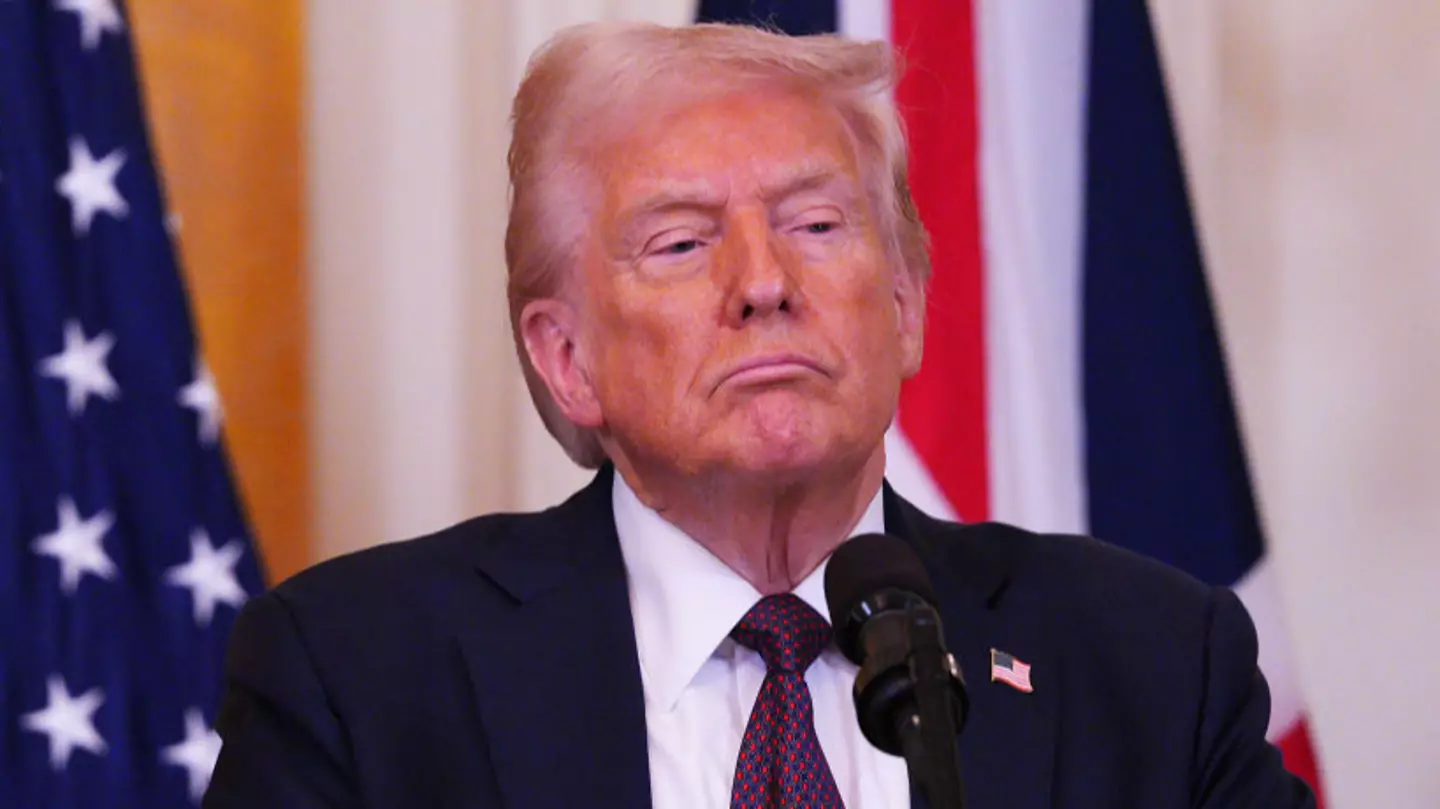

Donald Trump has now signed an executive order that makes English the official language of the United States of America.
Trump has signed an influx of orders since he was sworn back into office on January 20, with one of his most recent signings marking a first for the country.
The US has never had an ‘official language’, but on Saturday (March 1), Trump signed an order making English the country’s designated dialect.
What does the order say?
“Establishing English as the official language will not only streamline communication but also reinforce shared national values, and create a more cohesive and efficient society,” says the order.
.jpg)
.jpg)
President Trump has made a series of changes to the US since returning to office (JIM WATSON/AFP via Getty Images)
“In welcoming new Americans, a policy of encouraging the learning and adoption of our national language will make the United States a shared home and empower new citizens to achieve the American dream,” the order also states.
“Speaking English not only opens doors economically, but it helps newcomers engage in their communities, participate in national traditions, and give back to our society.”
How the change will impact people
Firstly, there’s now no longer a Spanish-language version of the official White House website. This was initially taken down when Trump returned to office in January. However, after the change sparked controversy, the White House pledged to restore the Spanish-language site.
As of yesterday, this was yet to have happened, and it’s unlikely to ever be restored in the wake of the new order.
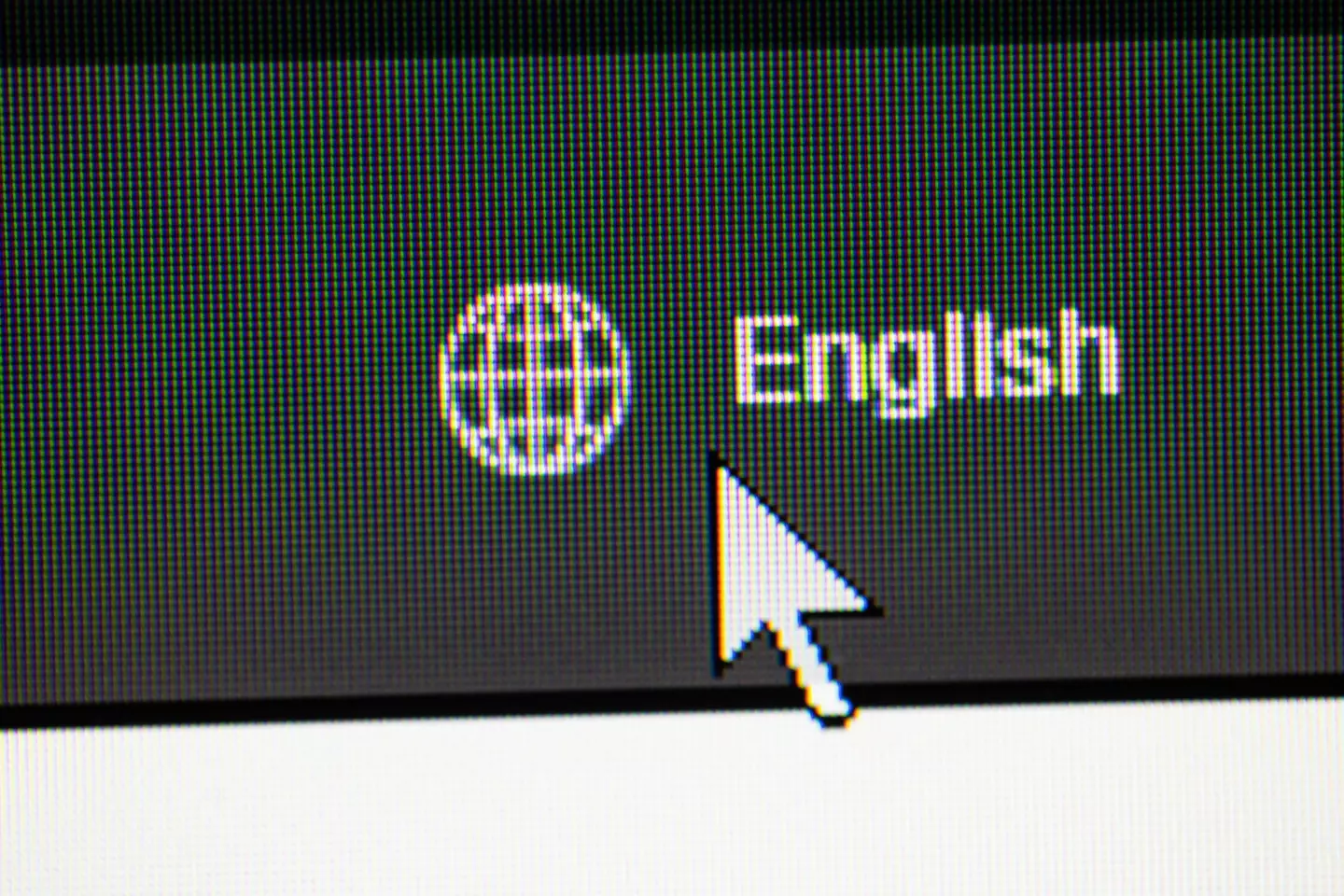

English is now the official language of America (Getty Stock Image)
The order also means that federally funded organizations now have the option to discontinue offering documents and services in languages other than English, says The Independent.
Those going through the progress of becoming a US citizen will now have to take an English test.
As part of the test, they must ‘demonstrate an understanding of the English language, including the ability to read, write, and speak basic English’, according to US Citizenship and Immigration Services, NBC News reports.
With this in mind, it’s expected that becoming a US citizen will now be more difficult than before.
What have people said about the order?
The order has been met with criticizm by many – one person being George Carrillo, co-founder & CEO of the Hispanic Construction Council.
He has said of the change, as per the Los Angeles Times: “This executive order, while framed as promoting unity, risks dismantling critical supports like ESL programs and multilingual resources that help immigrants adapt and contribute.
“Imagine families navigating healthcare or legal systems without materials in a language they understand, it’s a barrier, not a bridge.”
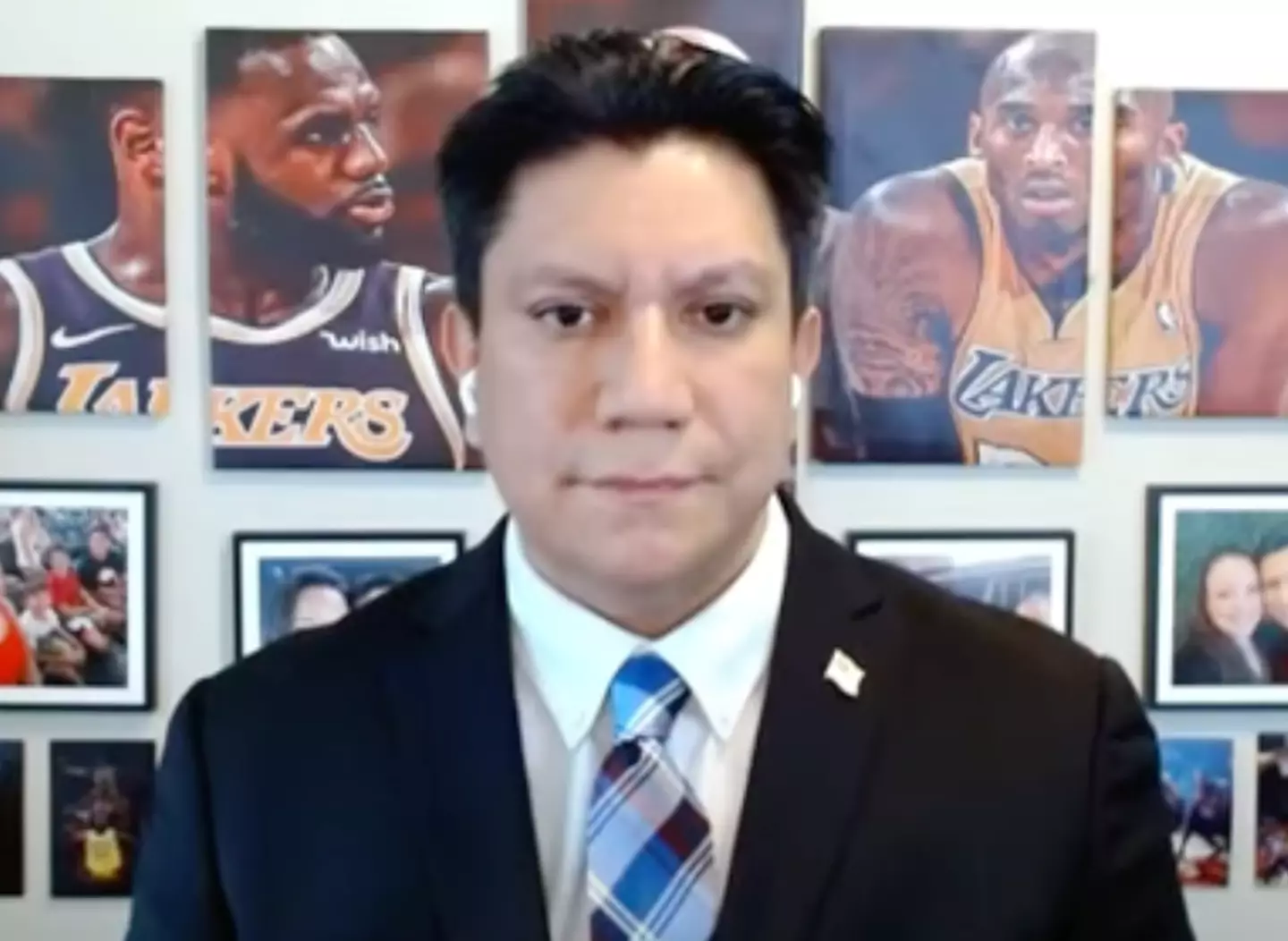

Hispanic Construction Council CEO George Carrillo has criticized the change (CNN)
Anabel Mendoza, the communications director for United We Dream, a nonprofit immigrant advocacy organization, has also hit out at the country’s newly appointed official language.
“Trump is trying to send the message that if you’re not white, rich and speak English you don’t belong here,” Mendoza said.
“Let me be clear: Immigrants are here to stay. No matter how hard Trump tries, he can’t erase us.”
In contrast, Vice President JD Vance branded the new order as ‘commonsense legislation’.
He said: “This commonsense legislation recognizes an inherent truth: English is the language of this country. That is why the overwhelming majority of the American people support this proposal.
“The English language has been a cornerstone of American culture for over 250 years. It is far past time for Congress to codify its place into law, which is exactly what this bill does.”
Featured Image Credit: Carl Court – Pool/Getty Images
Topics: Donald Trump, US News, News, Politics
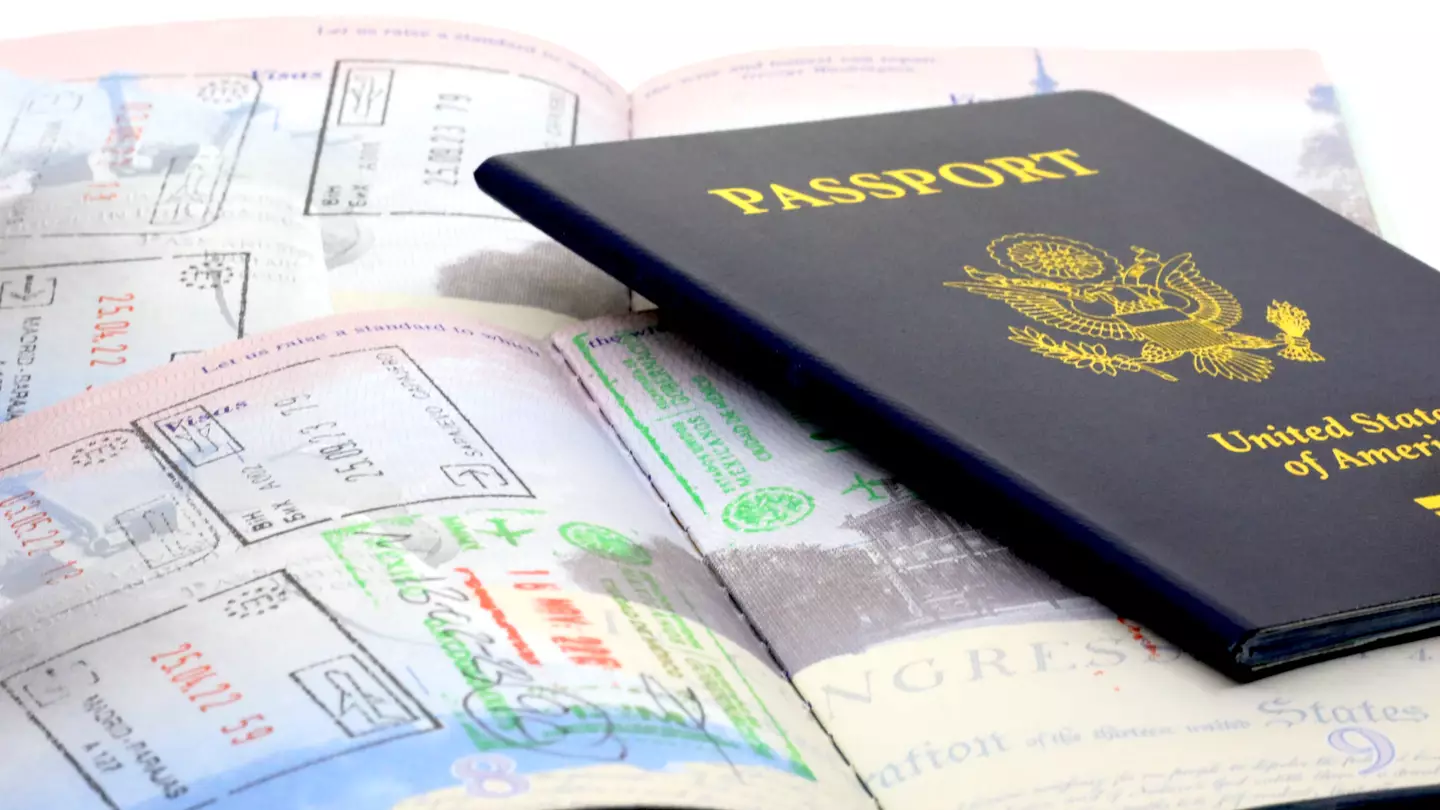

When he became president a second time, Donald Trump was eager to sign off more than 200 executive orders on his first day in office.
Many of these reversed certain policies Joe Biden’s administration had ushered through – including an order for non-binary people to be recognized with an ‘X’ gender marker on passports.
However, Donald Trump’s ‘Defending Women From Gender Ideology Extremism and Restoring Biological Truth to the Federal Government’ order means that the ‘third gender’ X option will no longer exist.
A 2021 survey found that 1.2 million Americans defined themselves as non-binary, and those who wished to put ‘X’ as their gender on their passports were able to do so that same year.
The first X gender passport was issued in October 2021, something which was hailed as a ‘momentous step’ at the time by diplomat Jessica Stern.
But now, these ‘third gender’ passport applications have been frozen.
.jpg)
.jpg)
Dozens of countries still recognize a third gender on official documents, including passports (STEFANI REYNOLDS/AFP via Getty Images)
The US Travel Department of State updated its website to reflect these changes in January, writing: “Under the executive order, we will no longer issue US passports or Consular Reports of Birth Abroad (CRBAs) with an X marker.
“We will only issue passports with an M or F sex marker that match the customer’s biological sex at birth.”
It continued: “If you submit a passport application requesting an X marker or requesting a sex marker that differs from the sex marker at your birth, you may experience delays getting your passport.”
However, the department clarified that ‘passports with an X marker will remain valid until its expiration date’.
There are still some 22 countries, however, which recognize non-binary people with adjustments to their passports, and have been doing so for longer than the US ever did.
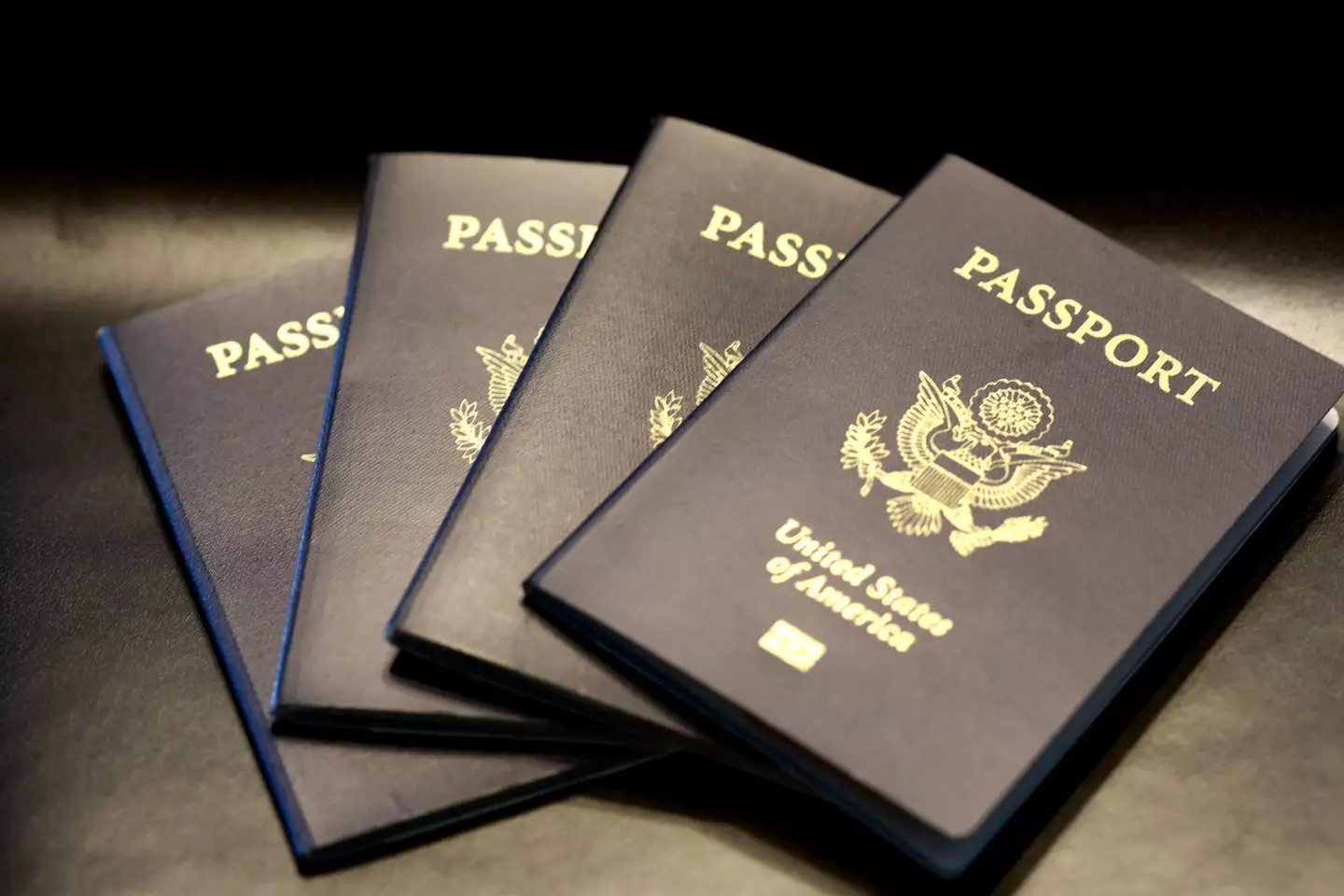

The US will no longer process passport applications from non-binary people (Douglas Sacha/Getty Images)
One of these countries is Denmark, which has offered the option of an X marker on passports since September 2014.
This is available to all Danish citizens, including those in the Faroe Islands and Greenland, which is rather ironic, considering Trump has been outspoken in his hopes of buying out the latter.
Countries that recognize non-binary passports
Along with Denmark, the following countries recognize non-binary people’s passports:
- Australia: One of the first countries to offer an ‘X’ gender marker on passports, doing so since 2011.
- New Zealand: As of 2023, allows an ‘X’ marker on passports via a statutory declaration.
- Belgium: A 2019 Constitutional Court ruling allows non-binary people to remove gender from ID cards, though a third gender isn’t officially recognized.
- Finland: A 2019 court ruling permits people to choose an ‘X’ on passports.
- Germany: The 2024 Self-Determination Act allows gender marker changes without medical/legal approval; ‘diverse’ is indicated by ‘X’ on passports.
- Iceland: Introduced an ‘X’ marker in 2022 following a 2019 self-determination law.
- Malta: Recognizes a third gender under a 2018 legal update.
- Netherlands: The first Dutch citizen received an ‘X’ passport marker in 2018 and plans are in place for gender-free identity cards by 2025.
- Norway: Introduced the ‘X’ gender marker on passports and legal documents in 2022.
- Argentina: Implemented a gender ‘X’ option on passports in July 2021.
- Brazil: Offers an ‘X’ option on ID cards.
- Canada: Introduced a gender-neutral ‘X’ marker on passports in 2017.
- Chile: Allows self-determination for gender identity since 2022; ‘X’ appears on birth certificates.
- Colombia: Has recognized a third gender as ‘no binario’ or ‘NB’ on IDs and birth certificates since 2022.
- Costa Rica: Has recognized an ‘X’ passport gender option since 2018.
- Mexico: Began issuing passports with the ‘X’ marker in May 2023.
- Uruguay: Allows gender self-determination for all official documents.
- Bangladesh: Since 2013, Bangladesh legally recognizes hijra people as a third gender on passports and documents, though this does not extend to all trans people.
- India: Following a 2014 Supreme Court ruling, India recognizes a third gender with ‘O’ on official documentation.
- Nepal: Issued its first third-gender passport in 2015 with an ‘others’ category.
- Pakistan: The 2018 Transgender Persons (Protection of Rights) Act allows individuals to identify as either male, female, both, or neither, signaled as an ‘X’ in federal documents.
Featured Image Credit: Douglas Sacha/Getty Images
Topics: Donald Trump, LGBTQ, Politics, Transgender, US News, World News, Joe Biden
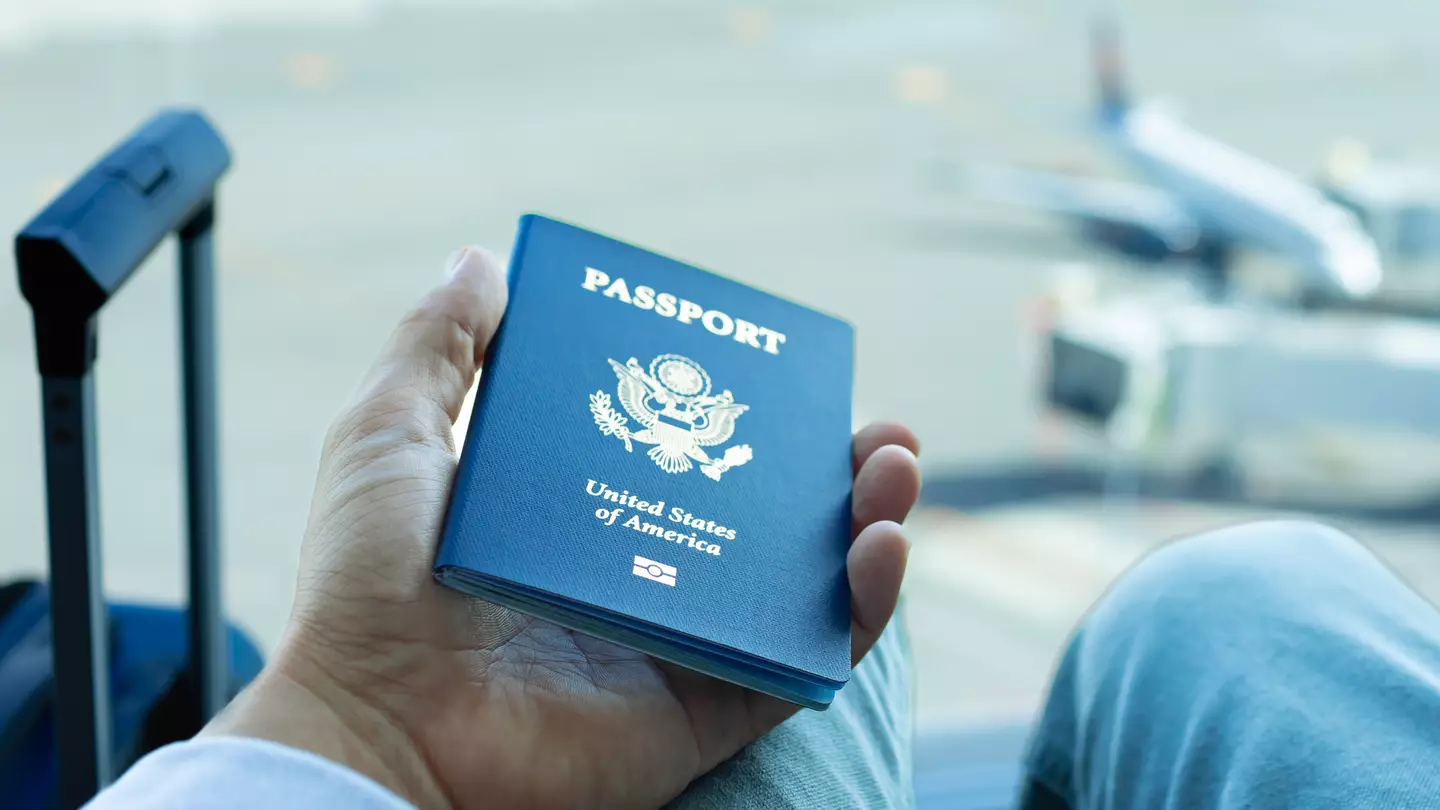

US citizens are being warned to ‘reconsider travel’ to 21 destinations, as the government added a South American country to its ‘do not travel’ list last week.
With summer fast approaching, many of us may be on the hunt for an exotic vacation to escape from the stresses of day-to-day life. However, there are several countries that the US government advises against travelling to due to major health, crime, and safety risks in certain parts of the world.
It comes as a fresh travel warning against Venezuela was issued last week.
On May 27, the US Embassy in Caracas, Venezuela, urged US citizens to avoid travelling to the country, as well as the surrounding borders between Venezuela and ‘Colombia, Brazil and Guyana’ for ‘any reason’ – primarily due to ongoing political unrest and high crime levels.
But Venezuela isn’t the only country that the US government believes could pose risks to vacationers, as the State Department’s Travel Advisory List regularly updates the risks certain countries could pose to its citizens.


The State recently updated its advice about travelling to Venezuela (Getty Stock Photo)
While the government issued a level four warning, advising against all travel to 21 countries—including North Korea, Russia, and Ukraine—for any reason whatsoever, a level three alert also covers another 21 countries.
Which countries fall under the US ‘reconsider travel’ list?
According to the State Department’s website, countries are assigned a level from one to four, with one indicating ‘exercise normal precautions’ and four denoting a ‘do not travel’ warning.
Each level is then reviewed within a certain length of time, as levels one to two are revisited in 12 months, while three to four are revised ‘at least every six months’.
The ‘reconsider travel’ warning means countries aren’t recommended to travel to ‘due to serious risks to safety and security.’
Among them are the Caribbean islands of Trinidad and Tobago.


Travel to Trinidad and Tobago isn’t recommended (Pabst_ell/Getty Images)
The US Department of State recommends that Americans’ reconsider travel’ due to serious risks from crime and kidnapping, as well as acts of terrorism.
Other tourist destinations include Egypt, which is on the level three list due to terrorism concerns.
As for the reason to exercise caution when travelling to Egypt, the website says: “Exercise increased caution in Egypt due to the Embassy’s limited ability to assist dual national U.S.-Egyptian citizens who are arrested or detained.”
The full list of countries on the ‘reconsider travel’ list includes:
- Guyana
- Trinidad and Tobago
- Papua New Guinea
- Burundi
- Uganda
- Bangladesh
- Colombia
- Guinea-Bissau
- Niger
- Chad
- Pakistan
- Guatemala
- Mozambique
- Nicaragua
- Honduras
- Macau
- Egypt
- New Caledonia
- Nigeria
- Mauritania
- Ethiopia
Featured Image Credit: Kieferpix/Getty Images
